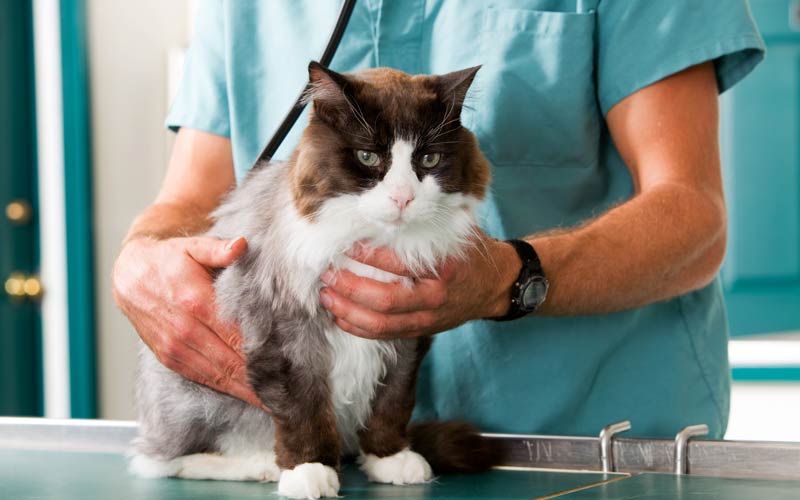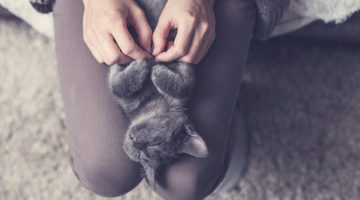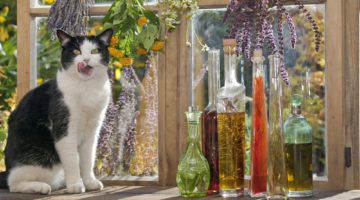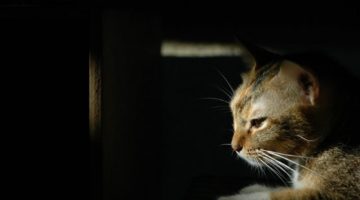FIV is a serious disease with no cure, but alternative therapies can boost immunity and help infected cats lead a normal life.
Sydney was dismayed when her young rescue cat, Tigger, was diagnosed with FIV. “I figured I’d lose him almost as soon as I adopted him,” she says. But thanks to a holistic treatment regime, Sydney was able to boost Tigger’s immune system to keep him relatively healthy. The friendly orange tabby is now five years old and doing well. “You wouldn’t think anything was wrong with him,” Sydney says.
Feline immunodeficiency virus or FIV is a retrovirus in the same family as the feline leukemia virus. It is classified by virologists as a “lentivirus” because it has a very slow mode of action. The FIV virus attacks the immune system and is found worldwide, and in the United States the infection rate is between 2% to 3% of all cats. Among sick or at-risk cats, the infection rate can be as high as 15%.
HOW IS IT SPREAD?
FIV is most commonly spread by bite wounds, so unneutered, aggressive male outdoor cats are at the greatest risk. Indoor cats have the lowest risk of contracting the disease. Studies indicate that the virus can occasionally be transferred from mother to kitten through milk, but that sexual transmission is not considered a significant cause of viral spread. If an FIV-positive cat lives in a household with other uninfected cats, transmission is not likely unless they fi ght. Casual contact does not spread this virus. Although FIV is similar to the human immunodeficiency virus, it is feline specific and not contagious to people or dogs.
When an infected cat bites another cat, the virus is injected into the bloodstream by way of the canine teeth. The virus then travels via the blood to the closest lymph node where it multiples inside the cells. It spreads to all the other lymph nodes and may cause them to increase in size. A fever may be present at this point, but will likely go unnoticed unless the lymph nodes are very large or the cat seems ill. Most cats infected with FIV never eliminate the infection; it persists in the body and slowly destroys the immune system over months or years.
SECONDARY INFECTIONS ARE BIGGEST DANGER
Many cats with FIV live for years and appear completely normal. But because the virus attacks the immune system, the cat is eventually unable to cope with common bacteria, viruses and parasites found in the environment. Most of the clinical signs associated with FIV arise from secondary infections, not the virus itself.
After the cat has been infected for a number of years and the immune system is no longer functioning well, you may see the following clinical signs of disease:
• Loss of appetite
• Chronic weight loss
• Persistent fever
• Poor hair coat
• Inflammation of gums and mouth
• Chronic recurrent bladder, skin or respiratory tract infections
• Persistent diarrhea
• Cancerous tumors
• Neurological conditions such as seizures and behavioral changes
• Bleeding disorders and bone marrow problems
HOLISTIC TREATMENTS ARE THE BEST BET
If you have a FIV-infected cat, keep him indoors so you do not spread the virus. He should be spayed or neutered and have regular veterinary checkups. It’s recommended that he be the only cat in the household, but if this isn’t possible and all the cats get along without fighting, then the risk to the others is low.
It is difficult to know how long your infected cat will live. If he shows no clinical signs, he may enjoy a normal lifespan, but if he suffers from weight loss, persistent fevers and infections, his longevity may be reduced. There are no conventional treatments for FIV. There is a vaccination, but it’s controversial and generally not recommended.
From a holistic perspective, FIV cats need to be treated like immune deficient individuals.
1. Stress reduction is very important.
2. Homotoxicology and homeopathy can be helpful supports. A homeopathic nosode for FIV does exist and shows some promise.
3. Astragalus and herbal formulations with isatis are useful because of their antiviral properties. There are Western and Chinese herbal formulas that contain these herbs and are helpful to build immune function.
4. A good, well balanced, preferably homemade diet can do a lot to help support the cat’s stressed immune system. A raw diet is not recommended because these cats are immune compromised.
Although FIV is a serious disease, it does not have to be a death sentence. With the proper care, many infected cats go on to live long and happy lives.







No Comment